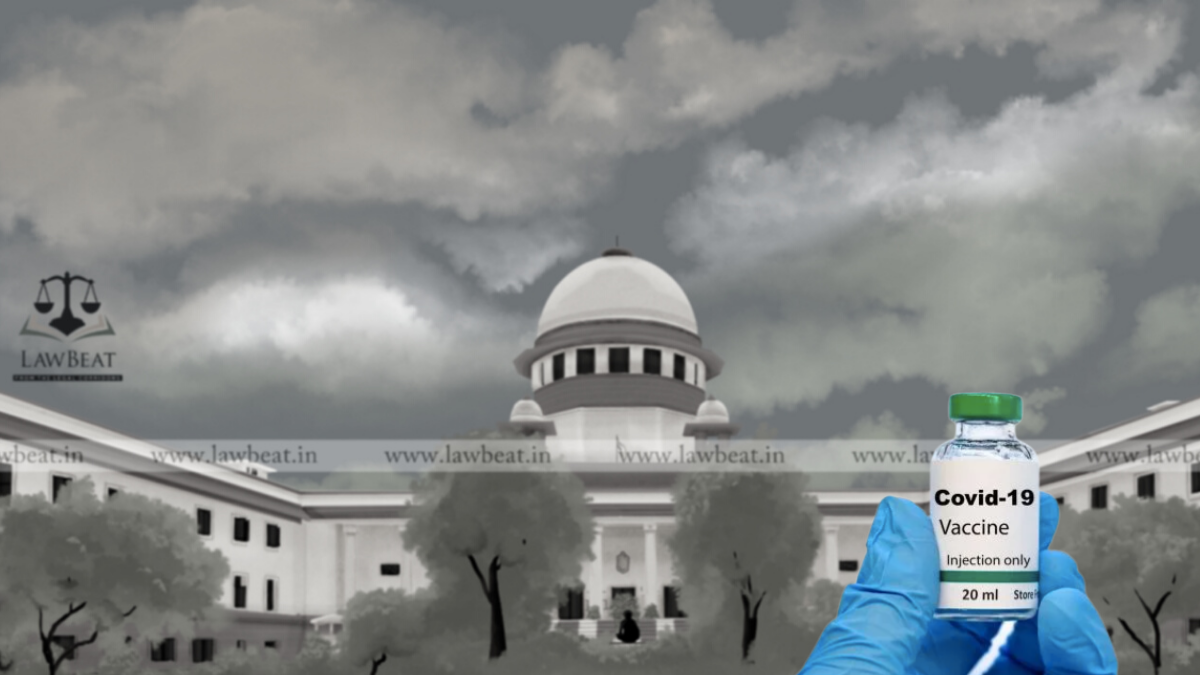Implementing features in Co-WIN portal to make it more accessible for PwD; no SOP which makes carrying of vaccination certificate mandatory: Centre informs Top Court

The Supreme Court has been informed by the Government of India that the latter has already undertaken the process to implement features in the Co-WIN portal to make it more accessible to persons with disability.
While responding to the suggestions made by Evara Foundation, an NGO, the Centre has filed an affidavit before the top court, highlighting as to how the suggestion so made have been or would be implemented/incorporated by them.
Last month, the top court had directed the NGO Evara Foundation to share its suggestions with the Court and the Central government in a plea seeking administration of Covid-19 vaccines to persons with disabilities and their caregivers at their place of residence.
A bench of Justice DY Chandrachud and Justice AS Bopanna had asked the NGO to formulate any concrete suggestions which they may have to strengthen the existing framework for facilitating the vaccination of the disabled and to ensure that they have proper access to vaccination against Covid-19.
The affidavit filed by the Ministry of Health and Family Welfare, GoI, further adds that vaccination is not mandatory and the directions and guidelines issued by the government do not envisage any forcible vaccination without obtaining the consent of the concerned persons.
"It is further humbly submitted that the vaccination for COVID-19 is of larger public interest in view of the ongoing pandemic situation. It is duly advised, advertised and communicated through various print and social media platforms that all citizens should get vaccinated and systems and processes have been designed to facilitate the same. However, no person can be forced to be vaccinated against their wishes", the government has clarified.
In their response, the government has further informed the Court that India’s COVID-19 vaccination drive is being guided by scientific and domain knowledge experts through a National Expert Group on Vaccine Administration for COVID-19 (NEGVAC).
"...On technical aspects pertaining to COVID-19 vaccination, the NEGVAC is guided by the National Technical Advisory Group of
Immunisation (NTAGI) which is India’s apex advisory body on immunisation. The NTAGI examines the technical aspects like usage
of different varieties of COVID-19 Vaccines, interval between vaccine — doses, contraindications etc. and recommends the same to NEGVAC. NEGVAC in turn provides overall guidance and recommendations on all aspects of COVID-19 vaccination to MoHFW including prioritization of population groups, procurement and inventory management, vaccine selection, vaccine delivery and tracking mechanism etc.", the affidavit states.
Filed through Veena Dhawan, Joint Commissioner (UIP), the affidavit adds that most of the suggestions made by the NGO on aspects like helpline numbers, door-to-door vaccination, vaccination access to the PwD without ID cards, appointing nodal officers at district levels, awareness campaigns etc have already been implemented.
Moreover, with regard to the suggestion to treat care providers as essential workers, it is submitted that the Government of India has advised all States/UTs to vaccinate bed ridden or beneficiaries with extremely restricted mobility or disability and/or special needs along with their care givers at their place of residence using mobile vaccination teams.
Referring to counselling before vaccination, the affidavit states that the Centre has formulated Operational Guidelines for COVID-19 vaccination as per which all beneficiaries are to be informed about adverse events which may occur after COVID-19 vaccine.
Evara Foundation had also made a suggestion to exempt the PwD from wearing masks. To this the Centre has responded by saying that this practice is in line with the recommendations of WHO. It further adds,
"Asymptomatic or pre-asymptomatic infected person who may feel well and are unaware of their infectiousness to others are also
likely to transmit infections to others. Similarly, persons with disabilities are just as likely to get infected with COVID-19 and transmit the same around them as any other person. In view of the same, in larger public interest, it is advisable that use of mask/face covers be universally followed."
Cause Title: Evara Foundation v. Union Of India And Ors
